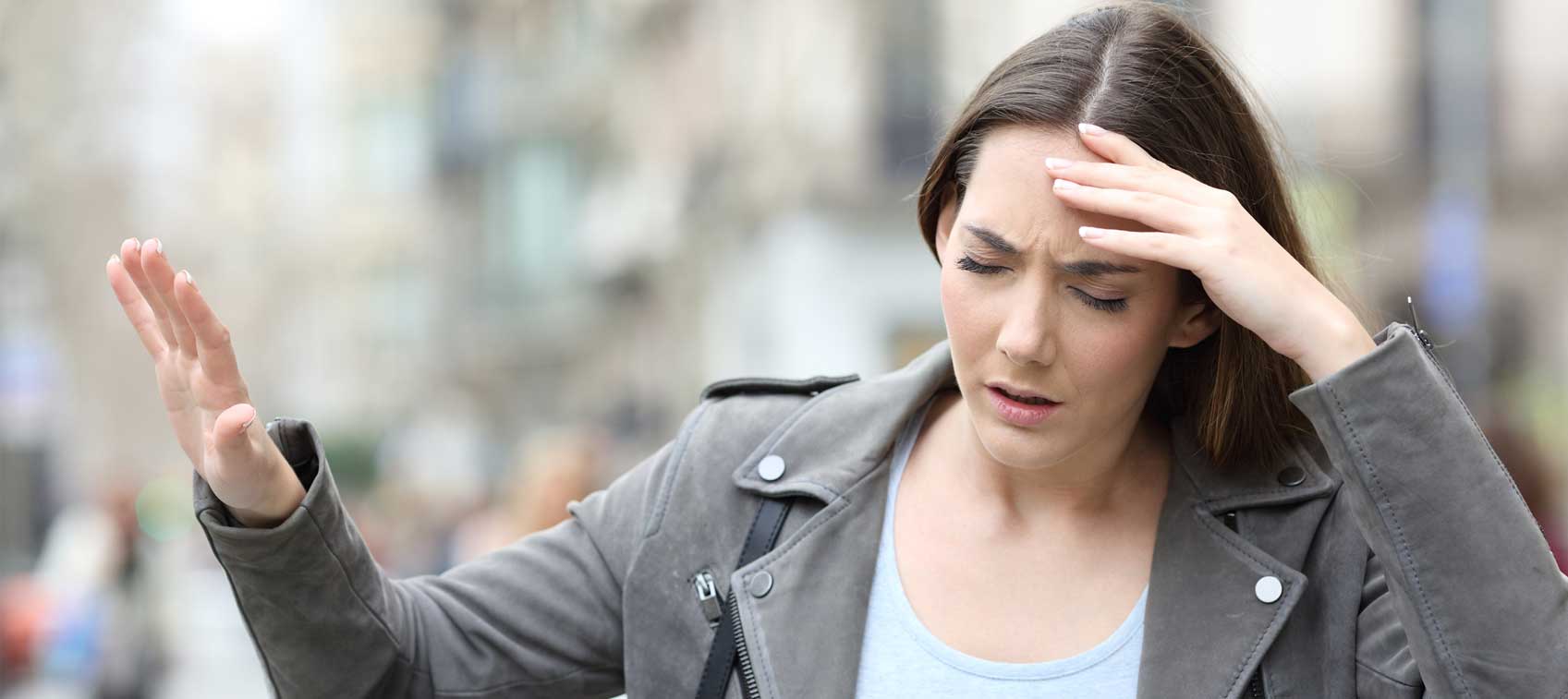
At one time or another we’ve all experienced sudden dizziness. As children, we may have even relished the sensation and did things that triggered it. As we get older, though, dizziness can come on unexpectedly and result in serious consequences like falling.
Falls are the number one cause of injury and death from injury among older Americans. There are 29 million falls per year, causing more than 7 million injuries and roughly 30,000 deaths among seniors. Fatal falls in the elderly reportedly account for about $31 billion in annual Medicare expenses.
Before he passed, my dad had numerous falls, and my mother has now broken her hip twice due to falls. I’m sure you probably know of at least one elderly family member who has experienced a serious fall resulting in injury or even death.
As we get older, the risk of serious injuries from falling increases. Fall injury rates are about seven times higher for older adults in poor health than for those in excellent health. Very often, these falls are caused by a loss of equilibrium or dizziness. And while there are numerous underlying causes of dizziness, many of these causes are overlooked and left untreated. This is unfortunate since the most common causes can easily be diagnosed and remedied naturally.
What Is the Difference Between Dizziness and Vertigo?
Many people mistakenly lump dizziness and vertigo into the same category and use them interchangeably. But knowing the difference between the two is key to treating and resolving either problem.
While both can be accompanied by nausea, vomiting, unsteadiness, and a loss of equilibrium, dizziness and vertigo are distinctly different.
Vertigo is the weird and frightening sensation that you or your surroundings are moving, rotating, or spinning. Vertigo has a rotational, spinning component even when you or your surroundings aren’t moving.
Dizziness, on the other hand, is the feeling of light-headedness, faintness, unsteadiness, and/or a floating sensation with a loss of balance.
Causes of Vertigo & How to Treat Them
There are a few major causes of vertigo.
Ear Stones/Otoliths
A major cause of vertigo results from small crystals that form in the inner ear becoming loose and displaced. These crystals or otoliths (“ear stones”) move out of their proper chambers and disrupt the normal sense of balance and orientation.
This condition is called benign paroxysmal positional vertigo (BPPV), and it is very common and underdiagnosed in senior citizens. In and of itself, it is harmless and easily treatable. However, the risk of accidentally falling when walking can have serious consequences. Roughly one-third of American adults over the age of 40 are up to 12 times more likely to experience a serious fall due to some form of inner-ear dysfunction.
One simple question can effectively determine if you suffer from BPPV: Does lying down or turning over in bed bring on vertigo? If your answer is yes, you may have BPPV.
To treat this common cause of vertigo, you can reposition the otoliths into their proper place in the inner ear. This can be accomplished using what is known as the Epley Maneuver—a technique you can do by yourself, but it’s easier if you have someone to help.
You’ll need to note which way you turn your head that elicits the vertigo, and then follow these simple instructions. The video illustrates the maneuver when the vertigo is triggered from the right inner ear. If the problem is caused by the left side, follow the same directions except turn your head in the opposite direction. You can perform this maneuver more than once if needed.
Medications That Cause Vertigo
Although I wouldn’t say they are a primary cause, many drugs may contribute to vertigo. Treating the vertigo would require changing or eliminating the problematic medication. Some of the top offenders include:
- Analgesics
- Antibiotics
- Anticonvulsants
- Anti-inflammatories
- Antimalarials
- Antivirals
- Benzodiazepines
- Cardiovascular drugs
- Erectile dysfunction drugs
- Gastroenterology drugs (including those used to treat acid reflux)
- Lithium
- Melatonin
- Rheumatology drugs
Diabetes
Diabetes can also cause vertigo. In this case, the vertigo occurs because hair cells in the inner ear and/or the small blood vessels in the area are damaged from high blood sugar levels. Research has shown that people with diabetes are up to 70% more likely to suffer from vestibular balancing problems than those without diabetes.
While the changes may not occur as quickly, there are a couple of exercises that can help retrain the brain to help compensate for the damage. To prevent the possibility of falling while doing these exercises, make sure you have good lighting, a level surface to stand on, and a handrail or other way to stabilize yourself.
The simplest exercise is to walk while turning your head in different directions. Another exercise is to practice standing on one leg while resting the opposite foot on the top of a Styrofoam cup and without crushing it.
Causes of Dizziness & How to Treat Them
Like vertigo, there can be several causes of dizziness.
Medications
Both prescription and over-the-counter medications can play a significant role. The list is quite long; just a few include:
- Antibiotics
- Anticonvulsants/anti-seizure medications
- Antidepressants
- Blood pressure drugs
- Blood thinners
- Muscle relaxants
- Nitroglycerin
- Pain relievers
- Sleeping pills (even melatonin can cause dizziness in some people)
Talk with your doctor to see if there are alternatives you can use to help alleviate this side effect.
Dehydration
Low fluid consumption can result in low blood volume and hamper the body’s ability to supply adequate blood flow to the brain and inner ear. Keep in mind, “fluid” refers to water. Diuretics like coffee or alcohol can contribute to dehydration.
Hypoglycemia
Skipping meals or going too long without eating can result in a drop in blood sugar, which can ultimately lead to dizziness, nausea, and even fainting.
Hypoadrenia
The overconsumption of refined carbohydrates creates a roller coaster effect on blood sugar levels and eventually leads to adrenal gland fatigue (hypoadrenia). This is probably one of the most common causes of dizziness.
The dizziness experienced as a result of hypoadrenia typically occurs after standing, due to a sudden drop in blood pressure. A simple way to test for this problem is to use a blood pressure cuff and have someone take your blood pressure while lying down and then immediately after standing up. If your adrenal glands are functioning properly, the systolic (top) number will rise 8 to 10 mm. If your blood pressure doesn’t rise or it drops, it’s indicative of hypoadrenia.
The abnormal fall in blood pressure is postural hypotension or orthostatic hypotension. Under normal circumstances, with the change of position the adrenal glands release the hormone cortisol, which temporarily raises the blood pressure, so the brain receives the necessary blood supply. When the adrenal glands are weak, this fails to happen and can result in the dizziness, lightheadedness or “head rush,” that is associated with standing up too fast.
You can correct hypoadrenia by avoiding refined carbohydrates, eating regularly, consuming adequate high-quality protein (too little protein can lead to dizziness), and supplementing with glandular supplements.
Heed the Warning Signs
The changes and symptoms we experience with our bodies are often warning signs, much like the gauges in our cars. We can either ignore them, or we can delve a little deeper and use them to help us change our habits to keep our health on track.
Dizziness and vertigo are two such warning signs that we need to heed if we what to maintain our health and independence for as long as possible. If you experience either condition, try to figure out the cause and best treatment. As always, it’s important to work closely with your doctor.


